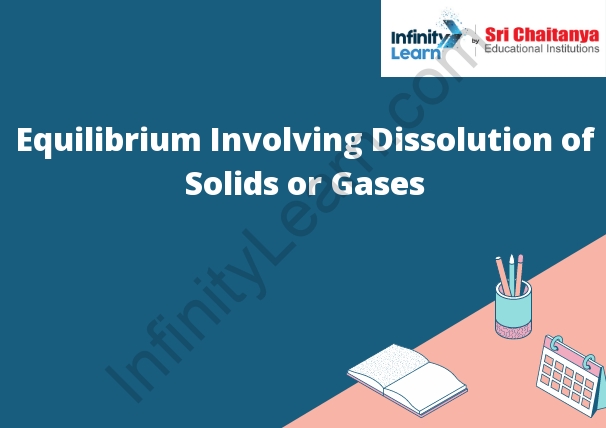Table of Contents
Equilibrium ; The Solubility of Gases and Solids in Liquids ; Henry’s Law ; and Partial Pressure
Equilibrium is a state of balance in which the forward and reverse rates of a chemical reaction are equal. The solubility of gases and solids in liquids is a measure of how much of the gas or solid will dissolve in a given quantity of liquid. Henry’s law is a mathematical relationship that describes the solubility of gases in liquids. Partial pressure is the pressure that a gas exerts in a container divided by the total pressure of all the gases in the container.

The Solubility of Solids in Liquids
When a solid is placed in a liquid, the molecules of the liquid will surround the molecules of the solid. The liquid will then attempt to dissolve the solid by breaking the bonds between the solid’s molecules. The more soluble a solid is in a liquid, the more easily it will dissolve.
Equilibrium Involving Dissolution of Solids
When a solid is placed in a solvent, the molecules of the solid will dissolve into the solvent. The concentration of the solid in the solvent will then decrease until it reaches equilibrium. At equilibrium, the concentration of the solid in the solvent will be the same as the concentration of the solid in the undissolved state.
The Solubility of Gases in Liquids
The solubility of gases in liquids is determined by the strength of the gas-liquid interaction. The weaker the interaction, the more soluble the gas will be. The gas-liquid interaction is determined by the polarity of the molecules. The polarity of a molecule is determined by the electronegativity of the atoms in the molecule. The higher the electronegativity of an atom, the more polar the molecule will be.
The polarity of a molecule determines the strength of the gas-liquid interaction. Polar molecules have a strong gas-liquid interaction and are less soluble. Nonpolar molecules have a weak gas-liquid interaction and are more soluble.
The solubility of a gas in a liquid is also affected by the temperature. The higher the temperature, the more soluble the gas will be. This is because the higher temperature increases the polarity of the molecules and the strength of the gas-liquid interaction.







